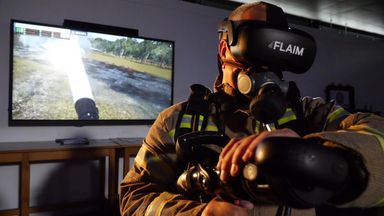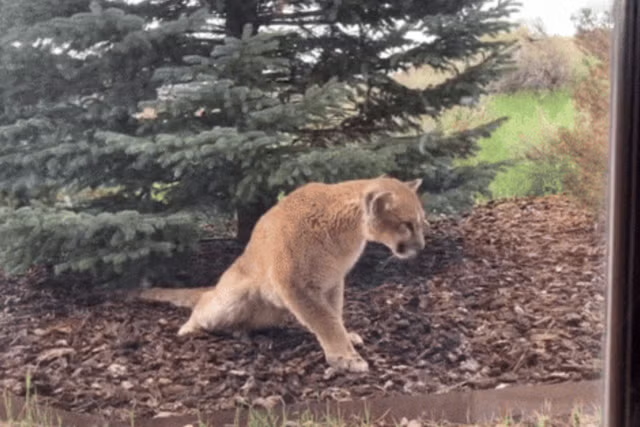TikTok sleep trends are affecting how Americans sleep, according to a recent survey from the American Academy of Sleep Medicine (AASM).
In the online survey that was released last week, it revealed that 37 percent of the 2,006 Americans who were polled admitted to experimenting with at least one viral sleep trend—and certain groups were more likely to have participated than others.
Members of Generation Z were more likely to have dabbled in sleep hacks than any other generation. Among the 18- to 27-year-olds who completed the AASM survey, more than half—55 percent—of them admitted to trying out a TikTok sleep trend. Millennials—28- to 43-year-olds—were not far behind, at 50 percent.
Men were also more likely than women to have tried to hack their sleep, with 43 percent of male responders indicating they had participated in sleep trends, compared with 31 percent of women. This may be because men are generally more likely to experience sleep disorders than women.
The most common trend was "bed rotting"—a practice where a person stays in bed for an extended period of time doing activities other than sleep, for instance scrolling on social media. "Bed rotters" might stay under the covers for a whole day or longer, aiming to rest and recuperate, or hide from the outside world.
Nearly a quarter—24 percent—of Gen Z respondents said they had tried bed rotting, and 14 percent of respondents overall.
"These trends may not be inherently harmful, but it's important to remember that the bed's primary purpose is for sleep," Dr. Anne Marie Morse, a Geisinger Health System sleep medicine physician and spokesperson for the AASM, said in a statement.
Morse continued: "The intentional practice of maintaining healthy sleep habits, like a consistent sleep schedule with regular timing of bedtime and waking and not going to bed unless you are sleepy, will serve as a positive reinforcement of the bed being a place for sleep and is essential for maintaining ease of falling and staying asleep."
Beyond bed rotting, the survey's authors concluded there had been a broader shift in how people use their beds. More than half—51 percent—of respondents said they spent more than 30 minutes in bed each night before even attempting to sleep, and 27 percent said they did the same thing after they woke up in the morning.
There were a variety of microtrends with which a few people had also experimented. The Scandinavian sleep method involves a couple who share a bed using two separate blankets or comforters rather than sharing—and 10 percent of survey respondents said they did this.
Magnesium is a mineral associated with supporting good sleep, and the "sleepy girl mocktail" is a drink featuring magnesium that is intended to improve sleep. Overall, 9 percent of respondents said they had tried drinking one before bed, but this viral trend was most popular among millennials, 14 percent of whom said they had tried it.
Some people even admitted to livestreaming themselves sleeping (7 percent) or watching livestreams of others sleeping (8 percent). This also was a trend that caught the attention of millennials most of all, 12 percent of whom said they had livestreamed themselves sleeping, and 14 percent watched livestreams of others sleeping.
Among Gen Z, 15 percent admitted to trying to sleep in 90-minute increments, compared with 9 percent overall.
Mouth taping was another viral sleep trend where tape is placed over the lips to force the sleeper to breathe through their nose. It was attempted by 5 percent of survey respondents.
"It is critical to differentiate whether the reason for experimenting with new sleep trends is because of existing difficulties with sleep or unsatisfactory wakefulness, as utilizing trends like bed rotting may actually worsen the sleep problem you may be experiencing," Morse said. "It is exciting to see increasing awareness and socialization about optimizing sleep, rather than the continued stigma, perpetuation and even championing of 'getting away with' less sleep."
She added: "Sleep problems are common and treatable; however, the right solution for the specific issue at hand is necessary."
Survey results may not be representative of nationwide habits. Those who participated in viral sleep trends may have been more likely to respond to the survey, either because they were interested in the subject or by nature of it being online.
The overall margin of error for this survey fell within plus or minus 2 percentage points with a confidence interval of 95 percent. It was conducted between May 16 and May 24, 2024 by Atomik Research, an independent market research agency.
The AASM recommends that adults get at least seven hours of sleep per night and aim to stick to a regular sleeping routine.
Do you have a tip on a food story that Newsweek should be covering? Is there a nutrition concern that's worrying you? Let us know via science@newsweek.com. We can ask experts for advice, and your story could be featured in Newsweek.
Disclaimer: The copyright of this article belongs to the original author. Reposting this article is solely for the purpose of information dissemination and does not constitute any investment advice. If there is any infringement, please contact us immediately. We will make corrections or deletions as necessary. Thank you.



